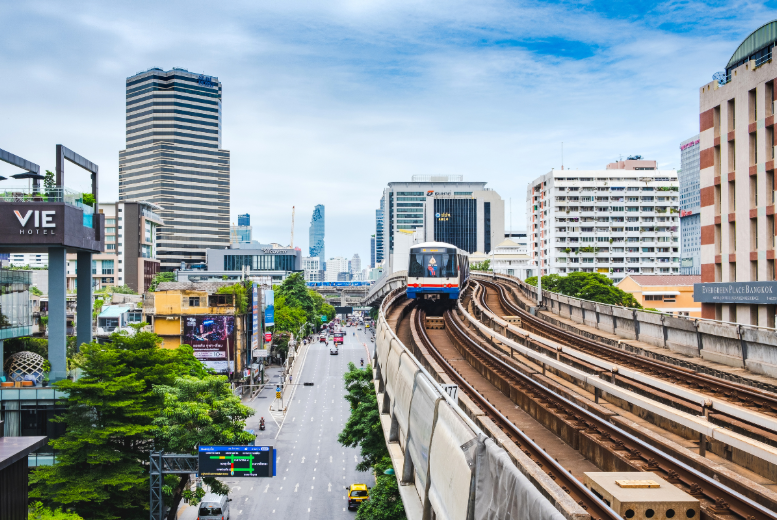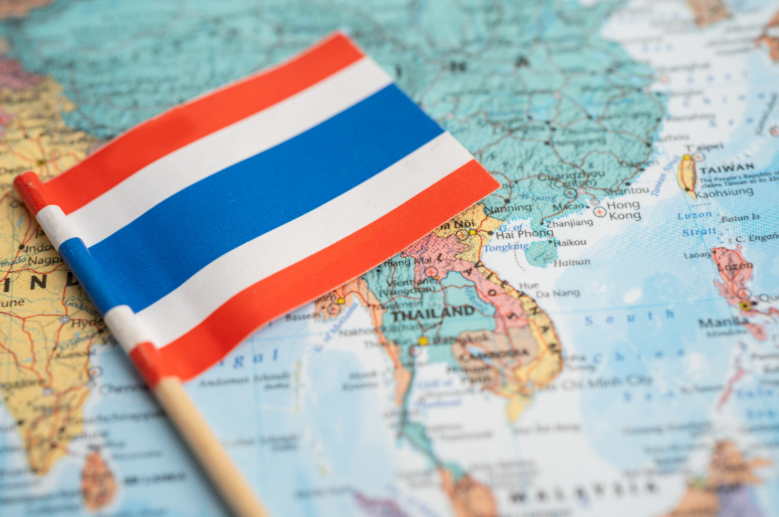Thailand has become one of the world’s most sought-after retirement destinations, attracting retirees with its tropical climate, rich culture, and exceptional value for money. The Land of Smiles offers a compelling combination of modern amenities, excellent healthcare, and significantly lower living costs compared to Western countries.
For many retirees, the appeal lies in the numbers: Thailand’s cost of living is approximately 47% lower than the United States, with housing costs averaging 70% less than comparable Western cities. This dramatic difference means retirement savings can stretch much further, potentially allowing for a more comfortable lifestyle than would be possible back home.
This comprehensive guide examines three realistic monthly budget scenarios for retiring in Thailand: $1,000, $2,000, and $3,000. Each budget level offers different lifestyle possibilities, from basic comfortable living to luxury retirement experiences that would cost significantly more in Western countries.
Living Comfortably on $1,000 Per Month in Thailand
A $1,000 monthly budget (approximately 35,000 Thai Baht) represents the entry level for comfortable retirement in Thailand. While this requires careful spending and lifestyle adjustments, it’s entirely feasible and can provide a quality of life that exceeds what the same budget might offer in most Western countries.
Housing: Finding Value Outside Tourist Areas
Housing typically consumes 25-35% of a $1,000 budget. In smaller cities like Chiang Mai or Udon Thani, basic studio or one-bedroom apartments range from $150-450 monthly. The key to maximizing value lies in choosing locations outside major tourist zones and city centers.
Northern Thailand’s rural areas offer particular value, with comfortable housing available for $150-300 monthly, including utilities. These areas provide authentic Thai living experiences while maintaining access to necessary amenities and expat communities.
Embracing Local Cuisine and Markets
Food represents both a major expense and an opportunity for cultural immersion. Street food meals cost $1-3 per dish, making it possible to eat well for $6-9 daily. Monthly food expenses range from $180-300 when focusing on local markets and street vendors.
Shopping at local markets provides exceptional value. Rice costs approximately $1.20 per kilogram, while fresh fruits and vegetables are similarly affordable. Home cooking reduces costs further, with basic meals possible for $1-1.50 each.
Healthcare Essentials
Basic health insurance meeting visa requirements starts around $1,000 annually, or roughly $90 monthly. Public hospital doctor visits cost $6-15, while private consultations range from $20-90. Thailand’s public healthcare system provides quality care at very affordable rates, though most retirees prefer private healthcare for shorter waiting times and English-speaking staff.
Transportation and Daily Expenses

Public transportation in cities costs around $30 monthly, while rural areas may require motorbike ownership at $60-120 monthly including fuel. Utilities including electricity, water, and internet typically range from $60-120 monthly, with air conditioning usage significantly impacting electricity costs.
Sample $1,000 Monthly Budget:
- Housing: $300
- Food: $300
- Utilities: $90
- Healthcare/Insurance: $90
- Transportation: $75
- Communications: $15
- Entertainment/Miscellaneous: $180
- Total: $1,050
This budget requires discipline and local lifestyle adoption but provides basic comfortable living with room for modest entertainment and emergency savings.
Enhanced Comfort at $2,000 Per Month in Thailand
Doubling the budget to $2,000 monthly (70,000 Thai Baht) dramatically improves lifestyle options, providing middle-class comfort that often exceeds what the same budget offers in Western countries.
Diverse Dining Experiences
The expanded food budget allows for variety and occasional Western dining. While maintaining street food and local restaurants as staples, retirees can include international cuisine and higher-end local restaurants. Monthly food expenses range from $360-600, including both home cooking and regular dining out.
Mid-range restaurant meals cost $4.50-15 each, making several weekly dining experiences feasible. Western food options become accessible for occasional treats without straining the budget.
Comprehensive Healthcare Coverage
Premium health insurance plans cost $1,500-2,400 annually, translating to $120-210 monthly for excellent coverage including pre-existing conditions. Private healthcare becomes the standard choice, providing access to Thailand’s world-class private hospitals with English-speaking staff and Western-standard facilities.
Improved Mobility Options
Transportation options expand to include private vehicles, regular taxi usage, and comfortable intercity travel. Car ownership or long-term rental costs $240-450 monthly including insurance and fuel. Alternatively, combining public transport, taxis, and motorbike rental provides excellent mobility for $90-150 monthly.
Luxury Living at $3,000 Per Month in Thailand
A $3,000 monthly budget (105,000 Thai Baht) enables luxury living that would be unattainable at the same cost in most Western countries. This level opens doors to premium accommodation, fine dining, comprehensive services, and extensive travel opportunities.
Premium Housing and Locations
Luxury housing becomes accessible across Thailand’s most desirable locations. Bangkok’s premium areas like Sukhumvit offer high-end condos with full amenities for $1,200-2,400 monthly. These properties include swimming pools, fitness centers, concierge services, and prime locations.
Beach destinations provide stunning options, with luxury villas or beachfront condos in Phuket, Koh Samui, or Hua Hin ranging from $1,500-3,000 monthly. These properties often feature private pools, gardens, and premium locations with ocean views.
Gourmet Dining and International Cuisine
The expanded food budget supports regular fine dining and international cuisine exploration. High-end restaurants charging $30-90 per meal become regular options while maintaining flexibility to enjoy Thailand’s excellent street food. Monthly food expenses can reach $600-1,050, including premium groceries, wine, imported foods, and fine dining experiences.
Premium Healthcare and Services
Premium international health insurance with worldwide coverage costs $2,400-4,500 annually, providing access to Thailand’s best private hospitals and including medical evacuation coverage. Luxury services including housekeeping, personal trainers, spa treatments, and premium club memberships become standard lifestyle elements.
Enhanced Travel and Mobility
Premium transportation options include luxury car ownership, frequent domestic flights, and regular international travel. Golf club memberships, fitness center access, and regular spa treatments fit comfortably within the budget.
Location Impact on Thailand Retirement Budget
Location choice significantly affects budget requirements across all spending levels. Thailand offers diverse options, each with distinct cost structures and lifestyle benefits.
Bangkok
Bangkok offers the highest costs but also the most amenities and international connections. A $1,000 budget provides basic living in outer districts, $2,000 allows comfortable middle-class living, and $3,000 opens doors to luxury urban living.
Chiang Mai
Chiang Mai consistently offers the best value for retirees, with costs 30-40% lower than Bangkok while maintaining excellent amenities and large expat communities. The city’s cooler climate, rich culture, and lower costs make it ideal for budget-conscious retirees.
Beach Destinations
Beach locations vary significantly in cost. Phuket commands premium prices due to its international resort status, while Pattaya offers good value with extensive expat communities. Hua Hin provides a balance of sophistication and value, particularly popular with retirees seeking quieter beach lifestyles.
Healthcare Across All Budget Levels
Healthcare represents a crucial consideration for retirees at any budget level. All retirement visa holders must maintain health insurance with minimum coverage of $12,000 for inpatient care and $1,200 for outpatient services.
Healthcare costs remain significantly lower than Western countries, with routine procedures costing 75-90% less than US equivalents. The budget level primarily determines whether retirees use public or private healthcare facilities and the comprehensiveness of insurance coverage.
Essential Planning Considerations
Visa Requirements and Costs
Thailand’s retirement visa requires applicants to be at least 50 years old and demonstrate financial stability through either maintaining $24,000 in a Thai bank account or showing monthly income of $2,000. Annual visa renewal costs approximately $60, with additional expenses for documentation.
Emergency Funds and Currency Considerations
All budget levels should include emergency funds for unexpected expenses or currency fluctuations. Thailand’s inflation averages 1-2% annually, but exchange rate changes between the US Dollar and Thai Baht can significantly impact purchasing power.
Making Your Thailand Retirement Dream Reality
Thailand offers exceptional value across all budget levels, but success requires careful planning and realistic expectations. The $1,000 budget demands significant lifestyle adjustments but provides comfortable basic retirement. The $2,000 budget offers middle-class comfort with flexibility for entertainment and travel. The $3,000 budget enables luxury living comparable to much higher incomes in Western countries.
Each budget level can provide a fulfilling retirement experience in Thailand, but the key lies in matching expectations with financial reality and embracing the cultural richness that makes Thailand such an attractive retirement destination. With proper planning and budgeting, your retirement in the Land of Smiles can exceed expectations while providing exceptional value for your retirement savings.

